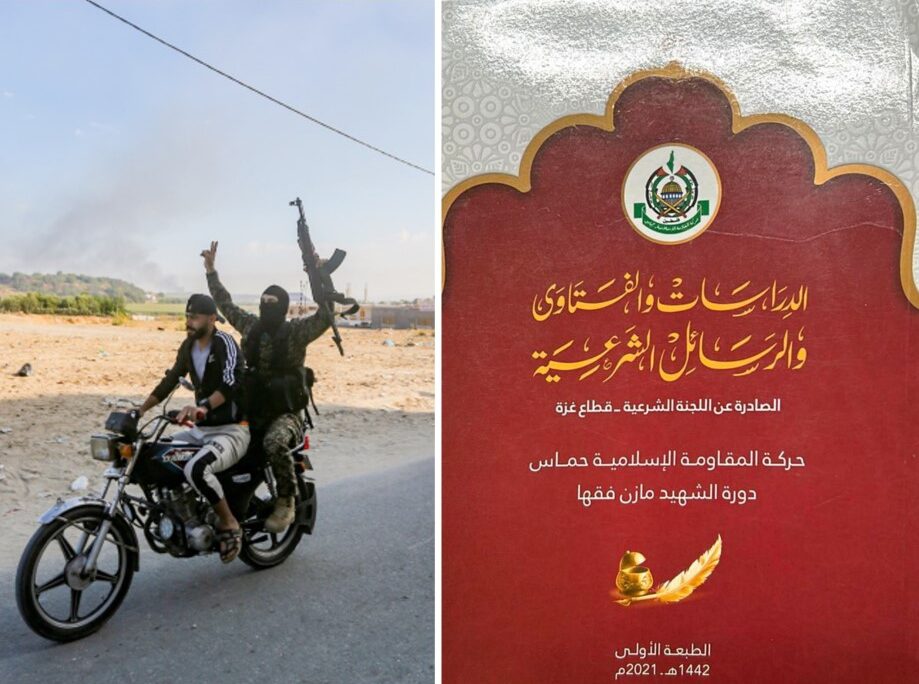
A book of Islamic religious law was discovered recently during an IDF raid on Hamas tunnels in Khan Yunis. It was published by Hamas’s Shura Council, the religious authority which is responsible for electing Hamas’ political bureau every four years and collaborates with them on social, political, and military policies. The book contains fatwas (religious rulings) which permit harm to women, the elderly, and the innocent. It was used as part of the ‘spiritual’ preparation for the October 7 massacre. In an interview with Davar, Shmuel Ben Shalom, a religious researcher who specializes in fundamentalist Islam, explains the religious background of the Hamas movement.
Hamas has been harming civilians in attacks since the mid-1990s. Why do they need to justify October 7 religiously?
"They don't need to. The justifications today are the same as what Sheikh Ahmed Yassin [the Palestinian imam who founded Hamas] put forward back in the mid-1990s. There is no new ruling here. The significant difference is the magnitude and systematic planning of the attack. Before embarking on such a large-scale operation, they collect the religious rulings and disseminate them to the fighters."
Are there religious laws that act as barriers to such an operation?
"According to sharia, Islamic law, it is forbidden to kill Muslims in battle and it is forbidden to commit suicide – these are the two highest level prohibitions. There are lower level prohibitions regarding the killing of women, children, the elderly, monks – populations that are not fighters by nature. In the Quran it is written that it is forbidden to destroy monasteries and synagogues, places where Allah may be glorified. Additionally, it is forbidden to burn people alive, including infidels. In Islamic warfare, there is no prohibition against killing innocent civilians, young and old men, who can take a rifle and shoot you."
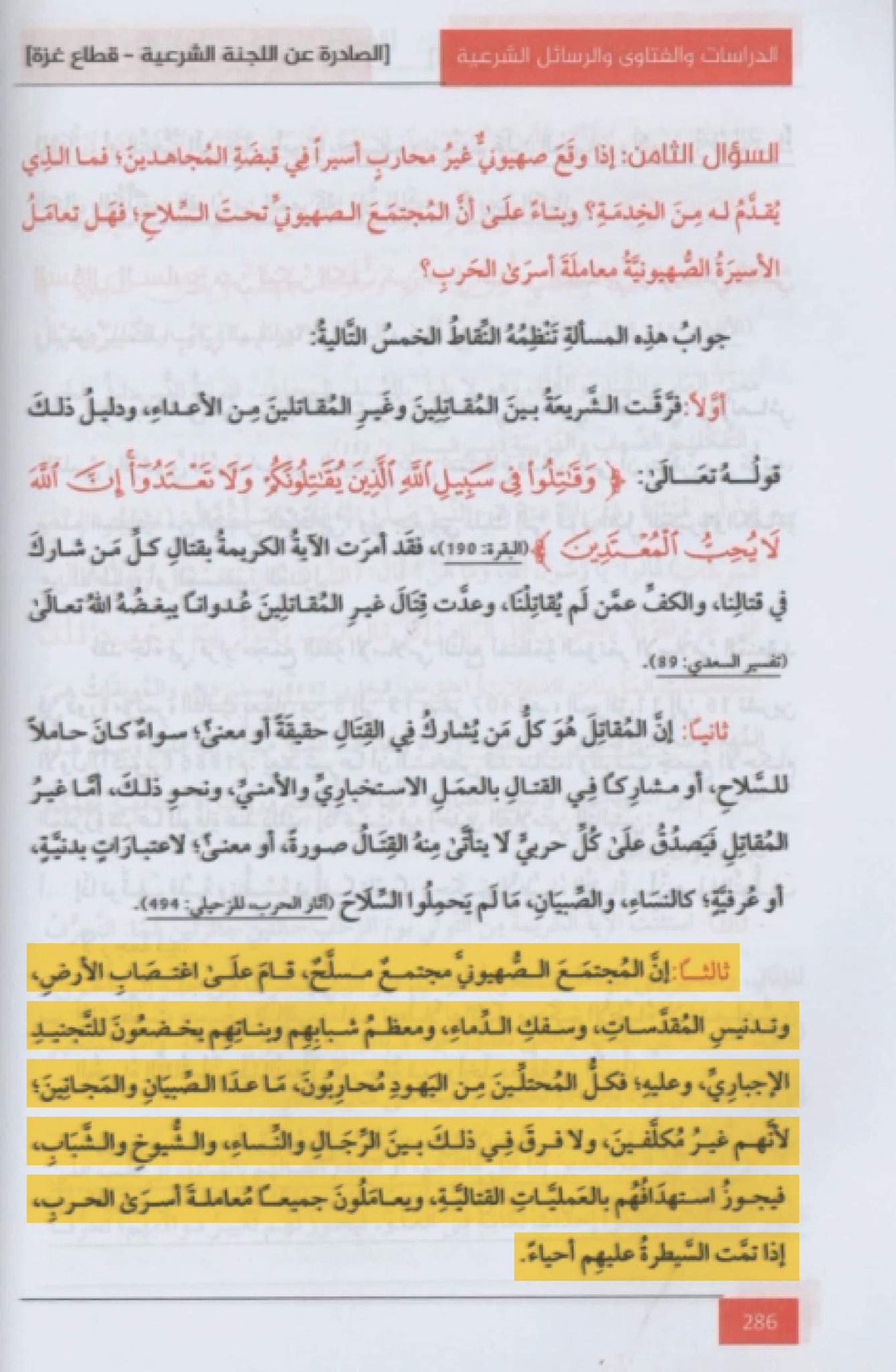
What does Islamic law look like? Is there one agreed upon body of religious law or are there multiple?
"As in Judaism, there are all kinds of religious laws. But between them are overlapping points of agreement. Regarding suicide and the killing of Muslims, even within such fundamental laws there are permits for specific situations. Religious rulings debate when it is permissible to kill women and children. There are endless discussions about the laws concerning captives. Because Jews were in exile for 2,000 years, our halachic laws relating to political and military issues are rather limited. Islam, in comparison, has an extensive system of religious laws on political issues."
So when Hamas wants to find religious justification, does it choose the law that suits it, or is it committed to one school of religious law?
"There are four main schools of thought within Sunni Islam, and Hamas is committed to the Shafi’i school. Moreover, it follows the religious tradition which developed in the Muslim Brotherhood, according to that movement's intellectual leader – Sheikh Yusuf al-Qaradawi – who lived in Qatar and died a year and a half ago."
The "Warrior Son" of the Muslim Brotherhood
To understand the ideological world from which Hamas derives their ideology, you need to understand their parent movement – the Muslim Brotherhood.
"The Muslim Brotherhood was founded by Hassan al-Banna in the late 1920s in modern Egypt. This is during a period of crisis: Egypt is occupied by the British, the Turks are abolishing the caliphate, there is an overwhelming secularization in process, Islam seems to be in retreat. Al-Banna is trying to found an Islam which responds to the problems of modernity.
"He has three principles. The first is that everything the West has, Islam has better – Islam is the solution. The second is that Islam is a solution for everything – not just a religion for mosques – Islam should manage all aspects of life. This is the birth of political Islam. The third is that Islam should be moderate – that it should follow a pragmatic path. This pragmatic path is towards military jihad, the holy war, the end of days. This is foundational to the ideology of the Muslim Brotherhood."
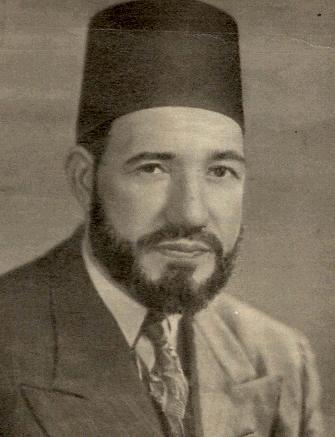
And what does Hamas believe?
"Hamas stems from the Muslim Brotherhood, and so they are in agreement. However, the concepts of moderation and pragmatism are very flexible. As such, Islamic law can be adapted to specific political conditions and the goals of political Islam.
"Qaradawi is the generation after al-Banna. He says that sharia should follow the moderate middle path. For example, in modern times there are millions of Muslims in Europe and America. Traditional religious law says that a Muslim is forbidden to live in a non-Muslim country, so according to Salafi law it is a sin to live in Europe. However, according to Yusuf al-Qaradawi, it is permissible to live in Europe, because modern Europeans allow living as Muslims. In addition to Dar al-Islam [Land of Islam] and Dar al-Harb [House of War], Qaradawi adds a third category – Dar al-Ahad [House of the Armistice]. This permits the taking out of loans at interest, a strict prohibition in Islam, for mortgage purposes, in order to build houses."
So how is all this expressed in regards to the Palestinian struggle?
"For Qaradawi, the Islamic interest in Israel is to kill Jews. This is why he ruled that in times of great need, it’s justifiable to ease the ruling regarding suicide attacks. Incidentally, when Hamas developed Qassam rockets, it withdrew for a period from suicide attacks."
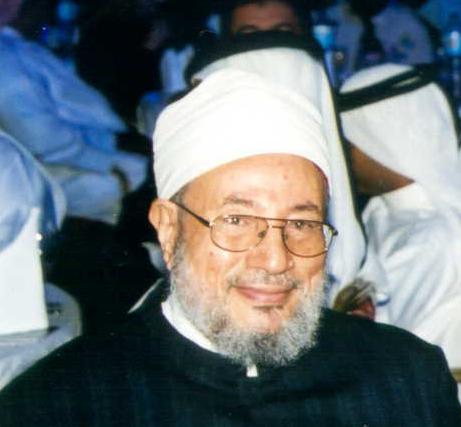
Is there another struggle of the Muslim Brotherhood that is as violent as the struggle in Israel?
"Only in Israel is there such a violent struggle. But they do believe that military jihad can work in other countries where Muslims are oppressed, such as Chechnya and Kosovo at the time. Besides, they also use violence against other Muslims, even though they are supposedly against it."
Is this violence an embodiment of something inherent to the Muslim Brotherhood, or is Hamas a stepchild that has gone beyond the organization's foundational ideology?
"I think it’s inherent. Even though the Muslim Brotherhood is principally against military jihad, there is still an underlying narrative of messianic times and the end of days. When you ask them where they fight, the answer is Hamas. This is where they do military jihad. Hamas is not the step-son, they are the warrior son. The hero who fights against the infidels.
"I have not heard any comments from the Muslim Brotherhood that say Hamas crossed a line. The official website certainly does not express this. On the other hand, the southern faction of the Islamic Movement in Israel [the Ra’am political party] has been boycotted by the Muslim Brotherhood for years.
"The Muslim Brotherhood has a tendency to resort to violence when they deem it necessary. Violence often breaks out in the field. Hassan al-Banna only permitted military jihad against Israel, but when Nasser came to power with their support and then persecuted them, the youth of the Muslim Brotherhood began to carry out terrorist attacks. Even with Hassan al-Banna, moderation was integrated into a dialectical relationship with violence. Violence is a tool always waiting in the background.
“In their logo, designed by al-Banna, it says: ‘Death for the sake of Allah is the highest of his requests.’ This slogan appears again and again. Each time circumstances push them there."
Steeped in Messianism
To what extent, in your opinion, did religious sentiment play in the violence Hamas committed on October 7th?
"In my opinion, it played a central role. When I watched the videos I tried to understand the Palestinian perspective. What were the Hamas fighters and the Palestinians of Gaza thinking? What I saw on their faces was very intense excitement. I saw one who crossed the fence and kissed the ground.
"Seventy percent of Gazans consider themselves refugees, though the overwhelming majority of them have never left Gaza. These are young Gazans who grew up under the rule of Hamas, and have been subjected to religious and messianic incitement for decades.
"In this context, the return marches can be seen as messianic marches. It is somewhat reminiscent of the movement of returning to the Temple Mount among Jews. These are the outcomes of growing up within a culture of messianic-religious fervor. The people of Hamas have been steeped in this messianism."
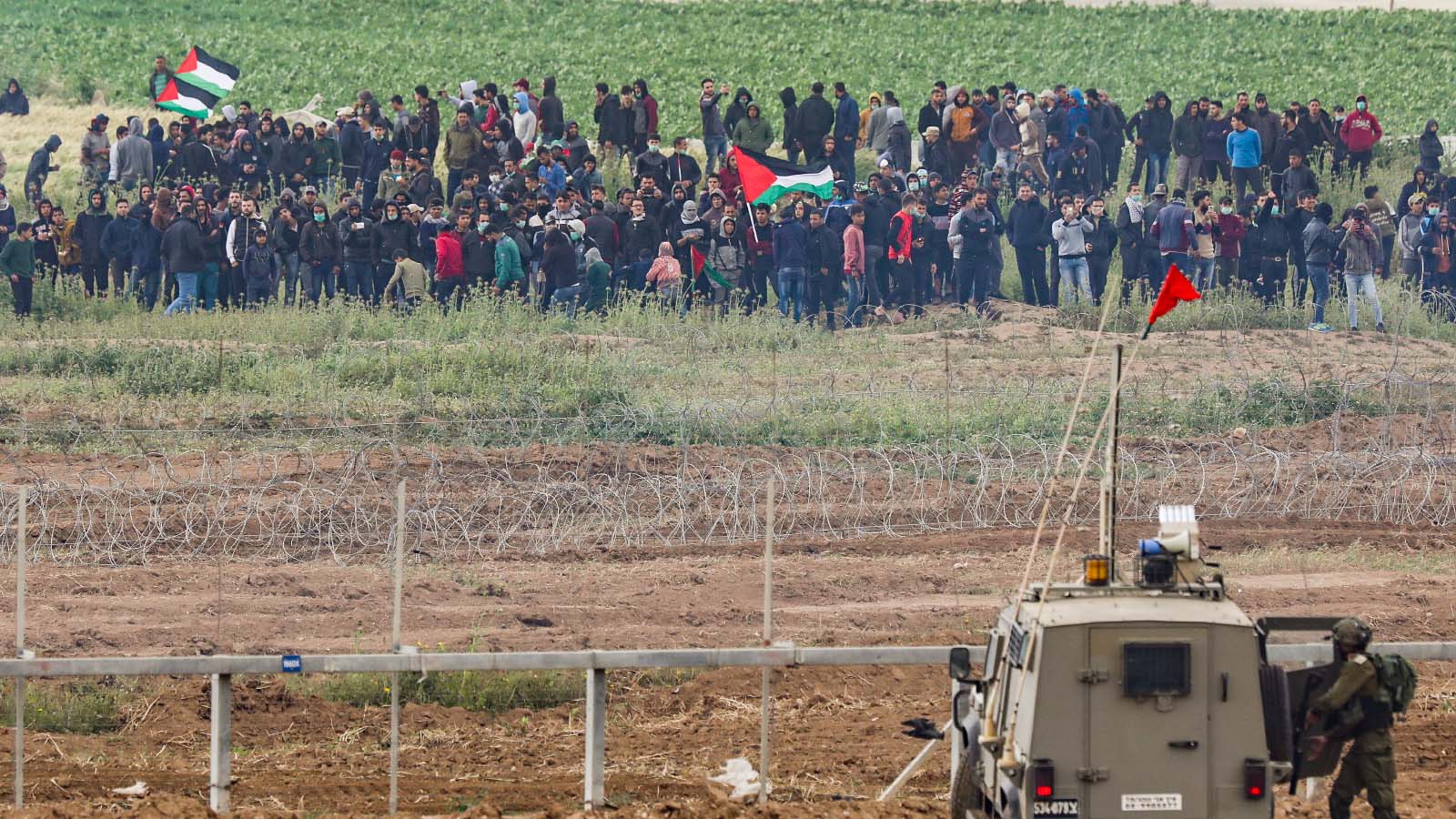
So what links this Islamic religious feeling to the national struggle of the Palestinians for a state and against the Jews?
"As in the principles of the Muslim Brotherhood, Islam is the solution. Hamas is coming to a world where Fatah, a national secular movement, is leading the war against Israel, saying: 'Do you want to liberate Palestine? Islam has a better way. As far as we are concerned, Palestine is Waqf land, or al-Aqsa surroundings, and this idea is stronger than your idea, because in its name it is forbidden to compromise at all on Palestine.' And this is how they develop religious hatred of Jews. There are many powerful political voices involved that maintain and motivate this ideology."
Isn’t hatred of Jews inherent in Islam?
"Hatred of Jews is not central to Muslim identity. However, in traditional Islam there is a prominent, if not core hatred against the Jews. In the Quran, Muhammad fought against several tribes of Jews in Mecca and Medina, and in the Battle of Khaybar. Over the years, in the Middle Ages, this immense hatred of Jews surfaced in several Muslim societies. But again, it is not a central aspect of Islam.
"In the modern day, Hamas has taken this hatred of the Jews and put it at the center of the story. Antisemitism is deeply embroiled in Hamas’ ideology. To illustrate the point, The Protocols of the Elders of Zion are used by Hamas and read in Gaza as ‘scientific’ and Western, decontextualized from their antisemitic history and falsehood.
"For another example, take the hadith [parable] of the stones and the trees, which Mohammed Deif [the head of Hamas’ military wing] quoted on the morning of October 7. The hadith Deif quoted is messianic, relating to the end of days. It describes a war between the Jews and the Muslims. But there are many other conditions that must happen before the war takes place – Jesus is supposed to descend from the sky, the Sea of Galilee will dry up, a false messiah will also descend from the sky to Israel, and only then will there be a war between Jews and Muslims. And in this war, the stones and trees will also cry: 'A Jew is hiding behind me, come and kill him.'
"It’s not mainstream in Sunni Islam to deal with the end of days, but the Palestinians adopted this hadith and took it out of its context. They developed a messianic tendency, because of their difficult situation, and from that they adopted this hadith and made it into a basic belief. It is quite clear to me that when the Palestinians left the Gaza Strip to attack Jews, this hadith crossed their minds."
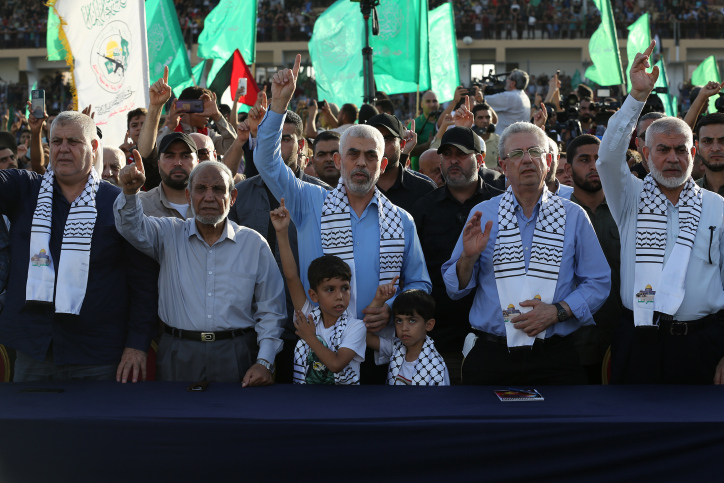
Does Yahya Sinwar use religion as a political tactic or is he honestly motivated by religion?
"There is no reason not to assume that he is truly religious. But even in what looks like messianism, there is a rational basis, which is based on the goal of liberating all of Palestine from the Jews.
“He works on it pragmatically. The ceasefire is a realpolitik move by Hamas. When you can't fight, you do ‘hudna,’ you make a truce. There's a hadith that says, 'Do not wish to meet the enemy in battle, but if you do, fight patiently.' You have to wait. But he’s never given up the ultimate goal, which is the destruction of Israel. This is the religious rationalism of Hamas and Sinwar."
We also see an attempt by Hamas to cover up the massacre.
"It's not just for the needs of external propaganda, it's an internal need. Hamas, in its view, is humanistic, even when talking about the destruction of Israel. In the internal ethos of Hamas, they do not glorify the acts of cruelty they committed. They deny the massacres. They say that only soldiers were killed. They enthusiastically hailed events in which Hamas fighters demonstrated moderation. When one of the incidents was published, in which captives were released and said they were treated well, I remember reading comments in Hamas who were proud of this and said: 'The sons of Hamas are fighters by day, monks by night, walking Qurans.'"
Understanding the Religious Fervor
There has been criticism recently that analysts too often skip over the religious part of Nasrallah's speeches in order to hear only what’s rational and political. This causes them to overlook much of his argument and what his audience absorbs.
"I completely agree. I personally mainly listen to the religious part. The rational part is meaningless political statements. It’s fluff. The religious part is where he’s really talking. In his last series of speeches, he brings up the fallen martyrs, 'Don't think they are dead…'. His ethos of martyrdom is completely different from that of Hamas. He cares much more about his martyrs, and their lives are precious to him."
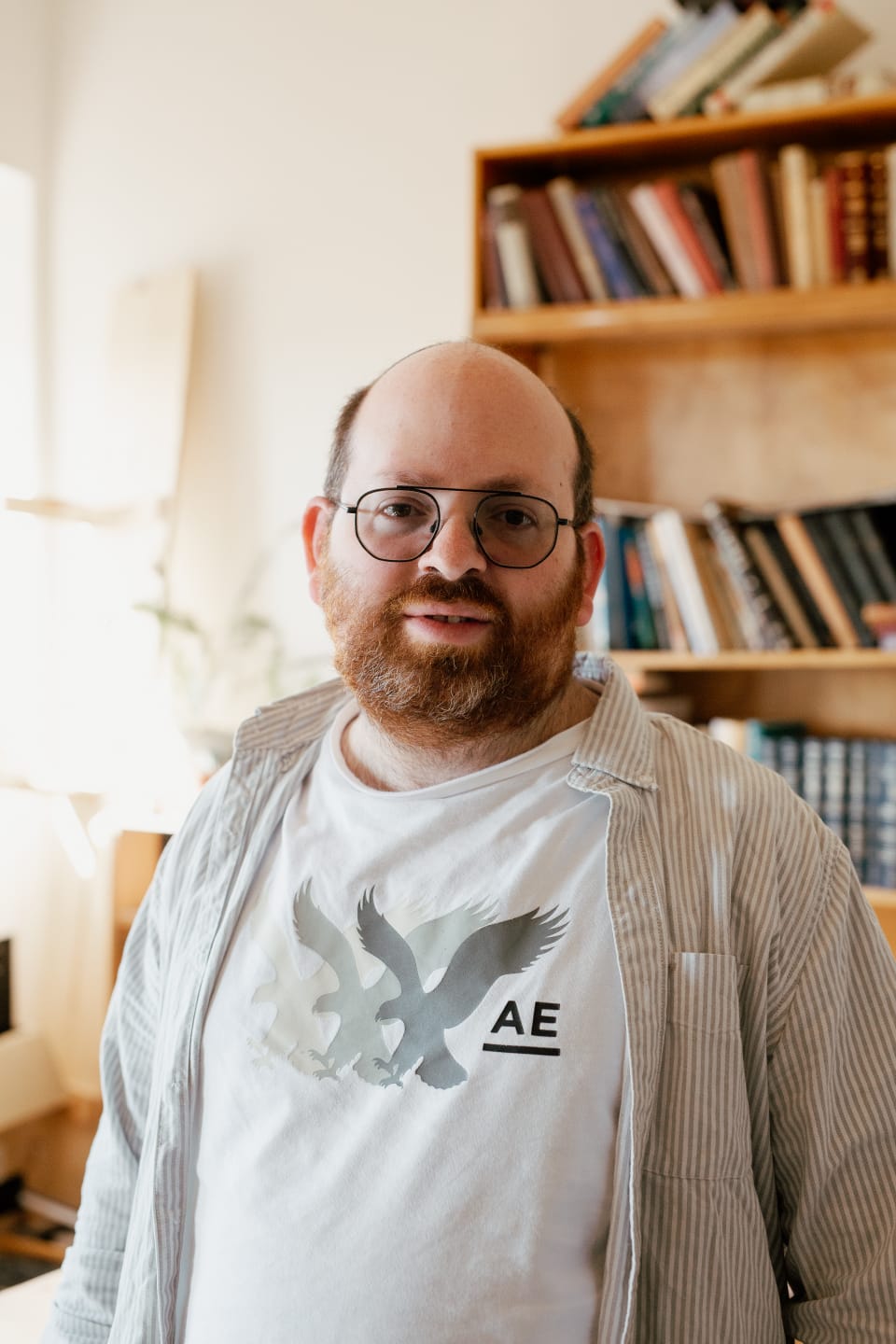
When a martyr is promised 72 virgins in heaven, does he take it literally? Does he think he won't 'really' die?
"There is a difference between Judaism and Islam. In ancient Judaism they talked about heaven in physical terms, the righteous sit with crowns at golden tables and eat feasts. But in the Middle Ages there was a revolution, which moved us to a more philosophical heaven. Your soul rises spiritually. Rabbi Saadia Gaon, the Rambam, and other philosophers popularized this theorization to the next generation.
"Muhammad adopted the physical descriptions of the Jewish sages, only translating them into the concepts of the desert – flowing rivers, green gardens, and also a virgin harem like the kings of his time had. In the Middle Ages, Islam also faced the contradiction between itself and rationalism, and Rambam's solution was also put forward – in fact, Rambam drew from Muslim thinkers. But the Islamic mainstream rejected this solution.
"In its place, the idea of 'without asking how' was adopted, meaning that everything is true, even though it is beyond our reach. So there is a hadith which says that Paradise is beyond our reach, but all the descriptions are true. The Islamic paradise continues to include the descriptions of virgins with an asterisk, which is beyond our reach."
People analyzing Hamas are mainly secular. Do you think most analyses underestimate the religious motive?
"I don't think that secularists can't analyze Hamas, but you have to understand that it's a religious phenomenon, and that a long process is needed to understand it. You can't translate everything into secular terms. Hamas tries to come to terms with rational ideas, but the driving force behind it is religious.
"Even as a religious Jew, I can't say that I understand a religious Muslim, because there are similarities and there are differences. I made light of Hamas' threat because I interpreted it into Haredi terms. The gap between the end of days according to Hamas and the reality on the ground seemed similar to me. I knew that to Hamas it was different, But there is a gap between the knowledge and the emotional recognition."
This article was translated from Hebrew by Etz Greenfeld.






